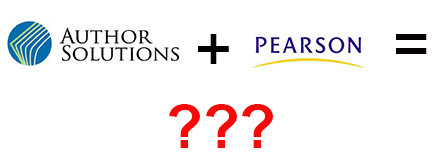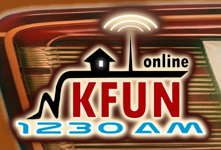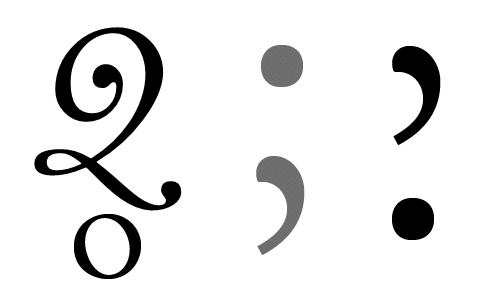Jane Friedman's Blog: Jane Friedman, page 186
July 25, 2012
Tips for Dealing With Rejection + Other Success Strategies
Earlier this week, I was the featured interviewee over at Andrea Hurst’s Authornomics series. I answer questions such as:
What’s the most important thing a writer should focus on to grow their career?
What are some tips for dealing with rejection?
How can self-publishing authors be successful in an ever-changing environment?
July 24, 2012
5 Remarkable Writing Prompt & Exercise Books
After working at Writer’s Digest for a decade-plus, I saw more than my fair share of writing exercise/prompt books—plus I also acquired and edited quite a few. Writing prompts have always been an ever-popular topic of discussion (and usefulness) for writers, regardless of stage of career.
Here I’d like to share what I found to be the most remarkable books—a mix of Writer’s Digest titles and other publishers’ titles.
Also: Over at the VQR blog, I’m looking for writers to share their favorite writing exercise or prompt. One random commenter will win a selection of Miro journals in a nifty canvas tote. Click here to go comment with your favorite prompt. (Don’t do it here or it won’t count toward the drawing.)
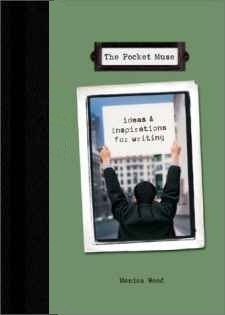 The Pocket Muse by Monica Wood
The Pocket Muse by Monica Wood
What makes this book so special is the small size, vivid images and playful design, and high-quality production. It’s now out of print, though you can get copies used–or opt for the sequel, The Pocket Muse 2.
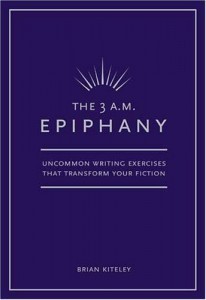 3 A.M. Epiphany & 4 A.M. Breakthrough by Brian Kiteley
3 A.M. Epiphany & 4 A.M. Breakthrough by Brian Kiteley
I rarely find the time to use writing prompts, but if I did, these are the books I’d use. Very sophisticated and thought-provoking, I do put them to work in the classroom—for brainstorming nonfiction ideas to write about. Highly recommend to both writer and teacher. (I know both books are popular in MFA programs.)
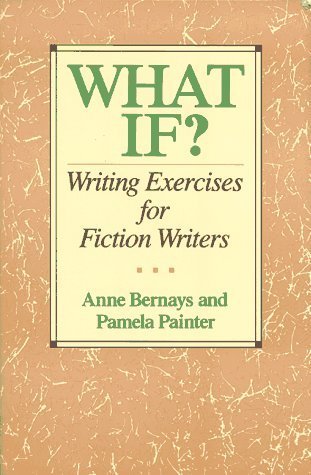 What If? by Anne Bernays & Pamela Painter
What If? by Anne Bernays & Pamela Painter
This is one of the original exercise books for writers, published in 1991. It has since been updated (and has a textbook price to match), but you’re safe sticking with the original.
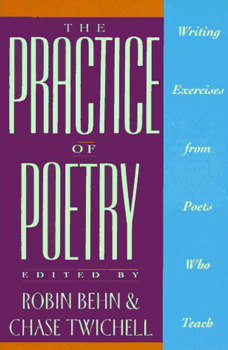 The Practice of Poetry by Robin Behn
The Practice of Poetry by Robin Behn
If you’re a poet, this is the one to grab. It’s another one that’s been around forever and doesn’t go out of style.
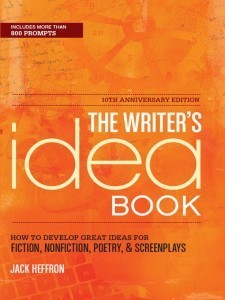 The Writer’s Idea Book by Jack Heffron
The Writer’s Idea Book by Jack Heffron
Last but not least, one of the best-selling titles of all time from Writer’s Digest was this exercise/prompt book, authored by one of its editors. It was just released this year in a 10th anniversary edition.
What are your favorite writing prompt books? Plus, don’t forget to share your favorite writing prompt over at the VQR blog.
July 23, 2012
A Little Bit About My Work at VQR
Yesterday, over at Neal Abbott’s blog, I answered a few questions about my new job at the Virginia Quarterly Review, what VQR does (plus when and what to submit if you want to be published there), and my latest favorite things related to social media. The last question Neal asked: 3 things that most people don’t know about me.
July 22, 2012
EXTRA ETHER: Publishing vs. Authors?
Soon, Jane Friedman, host of the Ether, would be writing:
I’m sad to say I’ve heard publishing executives talk about the opportunity to “monetize unpublished manuscripts” and it’s why I left commercial publishing. Is this where the industry is headed? If so, I want no part of its future.
Put baldly, the extreme end of what Friedman was getting at is a potential scenario in which major publishers could effectively cannibalize their main resource, turning the industry’s authors into paying consumers of publishing services.
And on Thursday, I was intent on watching the emails rolling by on a private publishing-industry Listserv.
“…$116 million…buying positive cash flow…sound strategic move…”
This list’s subscribers were discussing the news that Pearson, parent of Penguin Books, was buying Author Solutions (also referred to as “ASI”).
“…the business will continue to be run by ASI …”
Some eyebrows were raised, yes:
…the Society of Authors in the UK, openly refers to ASI as a ‘vanity publisher’…
A few wondered at the announcement’s silence about Book Country, Penguin’s own author-development program, once proudly ballyhooed, now absent from the press releases:
…Penguin’s John Makinson said…they hadn’t put much thought into how it might work with Book Country…
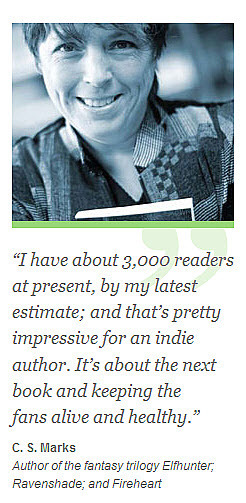
A case-study vignette from the Author Solutions site’s Publishing Services page.
Some people contributing to this email thread have business links to Author Solutions, something Friedman flagged in her agenda-setter, Is the Author Solutions Acquisition a Good Thing for Authors?:
If you didn’t know, a growing part of ASI’s business since roughly 2009 has been establishing white-label services. Thomas Nelson, Harlequin, Hay House, and even my former employer, Writer’s Digest, ended up striking deals with ASI to offer paid publishing services you might know better as WestBow, DellArte, Balboa, and Abbott Press.
But the only thing that seemed to slow down the debate was a lone voice, a member of the list who was in an awkward position because she or he runs a rival outfit, of sorts, to Author Solutions:
…ASI…heavy handed sales practices…exploit the hopes and dreams of unwitting authors…
Penguin's acquisition of @July 19, 2012 1:33 pm via web Reply Retweet Favorite Molly Barton
Reports of “heavy handed sales practices” were the type thing Friedman would soon be writing about.
So would David Gaughran in his post, Penguin’s New Business Model: Exploiting Writers .
So would Victoria Strauss in her highly regarded watchdog column, Writer Beware: Pearson Buys Author Solutions .
So would former Saturday Evening Post assistant editor Emily Suess in her scathing post this weekend, Calling Bullshit: A Closer Look at the Author Solutions Press Release . Suess:
The short list of recurring issues (by which Suess refers to allegations cited over time by authors about Author Solutions companies) includes: making formerly out-of-print works available for sale without the author’s consent, improperly reporting royalty information, non-payment of royalties, breach of contract, predatory and harassing sales calls, excessive markups on review and advertising services, failure to deliver marketing services as promised…
But these are not the kinds of things our pundits were talking about.
A great, gaping divide was revealed on Thursday between (a) the professional practitioners of the industry! the industry! in its digital disarray and (b) those authors who must supply this business with its essential, indispensable raw material: the writing.
@July 20, 2012 4:48 pm via TweetDeck Reply Retweet Favorite ljndawson
@July 20, 2012 4:50 pm via TweetDeck Reply Retweet Favorite ljndawson
Whose Vanity?
I asked one specialist from the email discussion, someone I thoroughly enjoy and whose work I respect, “Have you spoken to any authors about the Pearson-AIS deal?” The answer: “No, not yet.”
I asked a highly placed Penguin Books manager in New York, another operative I admire and whose work I follow closely, “Do you know if anybody in acquisitions at Pearson or at Penguin asked any authors about Author Solutions before buying it? Did they speak with any writers?” The answer: “No, they did not.”
So perhaps this can explain why industry figures were confounded by the resentment of some in the creative camp about the Pearson-Penguin move: No one seemed to think it important to ask authors what they thought of it.
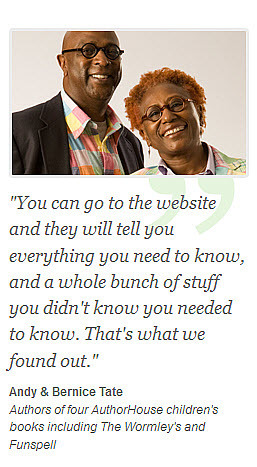
A case-study vignette from the Author Solutions site’s About Us page.
No one seemed to think of the authors at all. Even when they had to say the word “Author” every time they said “Solution.”
Maybe they believe that the corporation on Liberty Drive in Bloomington, Indiana, will receive Author AbSolution once it enters the Temple of Pearson. And, lo, the Penguin’s wings shall turn to those of an angel and the halo of hope shall crown each lonely writer with the glory of successful publication.
Our colleague Peter Turner — a staunch advocate for independent bookstores, by the way — did have the grace to ask about the consternation the acquisition has triggered. He put it this way in a comment on the Ether:
Maybe I’m missing something here but I have to confess I find it perplexing, the dustup over the acquisition of Author Solutions by Penguin and its effect (or not) on Book Country’s model. It’s a minor acquisition by a major publisher at an extraordinary moment of wide-spread spaghetti wall tossing. And the exclamations of surprise and horror at some self-publishing-providers-industry’s predatory attitude toward authors and would-be authors strikes me as very Claude Rains.
I’ve collected key articles and posts at the top of Writing on the Ether, an “EtherDome” section, so you can peruse for yourself what coverage has moved.
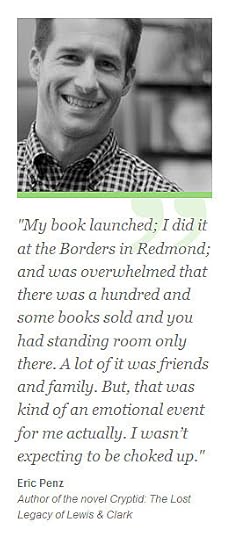
A case-study vignette from the Author Solutions site’s News page.
In addition to the writings mentioned above, there’s work from Jeremy Greenfield and Laura Hazard Owen — these are two journalists I know to have followed the news call with Penguin Group’s Chairman and CEO John Makinson and ASI’s CEO Kevin Weiss.
There are also pieces from Sarah Weinman, Laura Dawson, Reuters’ staff in London and TheFutureBook’s and TheBookSeller’s Philip Jones.
In a rare return to blogging on publishing issues, Guy LeCharles Gonzalez helps clarify the big divide we see in the reactions to this unusual story. Gonzalez writes that when he first learned of the acquisition:
My cynicism was driven partly by my own experience working with several of ASI’s units, before and after they acquired them (back when I worked for Writer’s Digest in 2007-2008)…
There’s a chasm of interpretation between observers on the creative side of the conference-floor aisle, if you will, and those on the business side.
OW MY NIPPLES HURT. RT @July 20, 2012 4:11 pm via TweetDeck Reply Retweet Favorite Evil Wylie
Authors as commodity
If a Big Six publisher like Penguin moves from selling books to readers to selling publishing “products” to writers, then maybe it’s not so surprising that consulting those authors — consulting the commodity, as it were — begins to look silly.
Not such a big jump, either.
In the old days the author would dither in off the street clutching the sole copy of his/her typed manuscript (if not having left it on the train). The publisher says, “Leave it there,” and it enters the huge opaque apparatus of editing, design, printing, distribution, marketing, etc that used to comprise publishing. Eventually the author is given a long lunch and shown the finished product that has emerged from the machinery. If they recognize their own book from the baffling choice of cover design, it’s a win.

Dave Morris
That’s author and video game designer Dave Morris, in a note to me. A key concern nowadays, he says, is that writers find themselves expected by publishers to carry so much more weight than before in publicity and other aspects of the work, but they say:
“We still offer 10% on print, 25% on ebooks. It’s non-negotiable, so if you don’t like it, there’s the door.”
As it happened, I’d been reading a new post from Morris’ wife, the English author Roz Morris, while mulling all this. In Do self-publishers still need to explain why? she writes:
There’s still an old guard who wants to keep us (self-publishing authors) as second-class writers. Plenty of literary competitions and review sites specifically bar indie authors.

Roz Morris
Roz Morris found that when she followed her bestselling success as a ghostwriter by self-publishing her own fiction:
I had to explain (the decision to self-publish) to the industry. If you listen to interviews with editors or pundits from The Bookseller or Publishers’ Weekly, they reinforce the notion that authors are feeble and ineffectual without the guidance of a publisher. Which is complete rot – often a new author will get hardly any editorial help.
@July 20, 2012 9:31 am via web Reply Retweet Favorite Judith Works
Doing themselves no favors
One of the thorniest elements of all this may be that authors actually work against themselves in their representations of their own work.
As many sensible things as Roz Morris may have to say in her article on self-publishing authors, her writeup lies on a site called Do Authors Dream of Electric Books?
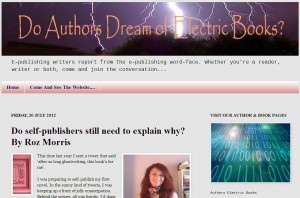 This is the shared blog site of a group of 28 self-publishing writers, each of whom takes a turn blogging each month.
This is the shared blog site of a group of 28 self-publishing writers, each of whom takes a turn blogging each month.
Graphically, it’s a cross between the proverbial “dark and stormy night” and a knockoff of the cascading code from “The Matrix” imagery.
The visual elements don’t go well together and appear to be stray scraps found online, sometimes tiled like the background on a recipe site.
By my count, there are at least six fonts or variants used “above the fold” on the blog page.
On the other hand, it’s encouraging to see that this UK-based site has two Flash widgets from Amazon, one for UK readers to get to that site and the other for US readers: internationalism is a must these days.

The Heather Harp is on offer at the Do Authors Dream of Electric Books? blog site, in alternation with ads for member-writers’ books.
But those widgets are alternating images of the group members’ book covers with products including:
Crabtree & Evelyn’s Rosewater Body Lotion
Chapelwood Butterfly Tower (“a safe place for butterflies to rest and spend the winter”)
Barnes and Noble Nook Simple Touch Reader — yes, being sold at Amazon for $91.01. Unless I have a different model here somehow, It appears to be $99 at BarnesandNoble.com
The Falcon CITY 6 WOMENS 19″ Leisure Bike, £159.99
And just in case you still don’t think this site is about Faeries at the Bottom of My Garden, you can purchase the Heather Harp Tm, 22 Strings for US$381.65 (a saving of 11%). It’s pictured amid puffy clouds in a blue sky. You can pluck out your own Celtic ditties for the wee people to dance to.
@July 20, 2012 8:01 am via HootSuite Reply Retweet Favorite Ania Wieckowski
Did We Ask Who?
So what shall writers say to the publishers, metadata experts, mainstream journalists, academic-journal chiefs, Big Six operatives, and other top-ranked pundits in the industry who didn’t ask any authors how they felt about Pearson-Penguin’s buy of the widely disparaged Author Solutions Inc.?

Roz Morris’ self-published novel
I believe the Electric Authors are professionals. Their combined output is tremendous, and I know, personally, that Morris — an editor who has worked at major publishers — is a complete pro. But I have to look past the group’s presentation of themselves to think this, and it’s a shame to see a group of accomplished writers poorly represented by their online storefront.
And that’s the case with too many in our creative pool. Whether you’re at a group site or a single writer’s homepage, It’s hard reading with one’s eyes wide shut, Mr. Kubrick.
Had the industry folks come calling with sharp, discerning questions about ASI’s business practices, could they be expected to overlook:
Cute cat and dog pictures as social-media avatars?
Goofy bios that might go down well in an undergraduate yearbook but not a day later?
Gurgling Facebook entries that somehow mix serious work items with the grandkids’ birthday parties?
Blog sites with no contact information, no bylines, no archives?
And the books. Here’s Roz Morris:
What doesn’t help is when self-published authors say they don’t mind the rough edges that you sometimes get with an indie book. The less-than-perfect editing, the cockeyed typesetting, the home-made aspect. That it’s part of the charm. I don’t find it charming and I think this attitude doesn’t do us any favours.
It really behooves Penguin to address the wide perception of Author Solutions as a predator. http://t.co/FoSjEp8I[image error]July 20, 2012 8:00 pm via web Reply Retweet Favorite Thad McIlroy
My point is that there is fault on each side of this canyon.
The professionals in the offices, the business people of the industry are, collectively, a very old dog with some new tricks to learn fast. And the first and most elemental of those tricks may just be to include authors, consult authors, talk regularly with authors, learn what’s up with these people. As we used to say at a large news network, be nice to every intern on the floor because by next week, one of them may be your new boss.
The authors — this vast, platform-whipped crowd without credentials, factioned off by genre, preyed upon by self-styled “gurus” — must achieve more professionalism in presentation and performance and deportment. As Jane Friedman has said in earlier writings, one of the great problems of the amateur is that she or he doesn’t know what professionalism looks like. Get a site review. And not from your mother.
As disappointed as I was to see so little communication between the suits and the cargo shorts about the Author Solutions story, I could understand why some of the business stakeholders might hesitate to approach the far-flung writer corps.
The two great camps of publishing may finally have to get together, you know. In fact, why don’t we meet in the same boat? Roz Morris:
My agent said to me that one of the most reassuring things for his side of the industry is that self-published authors find it hard to tackle the problem of discoverability.
If a company like Pearson wants to make money off the aspirations of authors, it needs to know what those authors see when it makes an acquisition. I may be wrong, but I don’t think the Birds Who Walk Upright knew what this move would look like in the field.
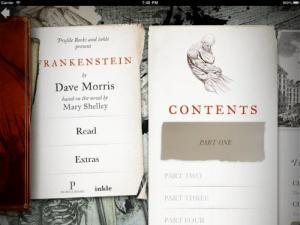
Dave Morris’ interactive app rendition of Mary Shelley’s Frankenstein
And if the writers want to take their place at the table and control their careers as they have every right to do, they’re going to need to clean up their acts. If that means availing themselves of Author Solutions in the House of Penguin, buyer beware and do your research — the responsibility is yours.
The last line goes to Dave Morris:
I prefer to be with a major publisher for most projects; they add value. But now we need to break open that mysterious machinery, separate it into components, and see where value is really being added. And that will be a different equation for each author.
| | |
Penguin’s acquisition of ASI isn’t innovation but a reaction born out of fear.[image error]July 20, 2012 5:58 am via Hibari Reply Retweet Favorite Baldur Bjarnason
@July 20, 2012 7:39 am via HootSuite Reply Retweet Favorite Guy L. Gonzalez
@July 20, 2012 7:47 am via Hibari Reply Retweet Favorite Baldur Bjarnason
@July 20, 2012 7:41 am via HootSuite Reply Retweet Favorite Guy L. Gonzalez
Writing on the Ether now can be followed not only here at JaneFriedman.com (free) on Thursdays, but also via RSS at the Publishers Marketplace’s Publishers Lunch Automat, in the section, ePublishing and the Future. (A subscription is required for Publishers Marketplace and its many services — easily worth the cost.) The @PublishersLunch industry news service is led by Michael Cader and Sarah Weinman.
Main image: iStockPhoto/MayaMoody
July 20, 2012
Is the Author Solutions Acquisition a Good Thing for Authors?
Yesterday, news broke that Pearson (parent company of Penguin) had acquired Author Solutions for $116 million. Read the basics here.
Just to make sure we’re all up to speed:
Pearson is one of the Big Six publishers.
Author Solutions (ASI) is the world’s leading provider of self-publishing services, primarily dealing in print-on-demand (POD) publishing and related service packages.
As the guy who filmed the double rainbow said: “What does it mean?”
Some writers have reacted to the news by saying, “This means self-publishing is the future!”
This is a misunderstanding of Author Solutions on a variety of levels, as well as what Pearson might have to gain from acquiring them. Two-thirds of Author Solutions’ revenue comes from selling services to authors—not from selling books.
Saying that this is the future is kind of like saying: “Authors paying hundreds and thousands of dollars to publish a book that never sells more than 100 copies is the future! Yay!”
This is how confused writers are.
But I know what they’re thinking. They see self-publishing in terms of all those success stories you hear about in the media—like JA Konrath, Amanda Hocking, and John Locke.
Well, I challenge you to find one of these phenoms that used Author Solutions as a service provider. Rather, the self-publishing authors making big bucks are folks primarily using Amazon KDP or related “free” services. In March 2011, I wrote a column for Writer Unboxed, pointing this out, and predicting that POD services, of the type that Author Solutions specializes in, had reached their peak. (Click here to read that post.)
Let’s assume for a moment that my article was correct. Why would a Big Six company invest in a service whose time has already come and gone—especially given that it’s like falling off a log to publish your (electronic) book these days, and that’s what all the publicized success stories focus on. Go publish through Amazon and make a fortune!
Laura Dawson writes that the acquisition is connected to Book Country, the Penguin online community for writers. Acquiring ASI means acquiring a back-end/infrastructure to help monetize that community. But if my theory is correct, then there’s limited money to be made specifically in POD/print services. So Pearson may be looking to grow related paid services to writers that aren’t about POD. (This could include editorial, design, marketing, and promotion services, which ASI also provides.)
That would mean: Self-publishing isn’t exactly the future here. It’s rather making money off a growing number of people who are writing and seeking professional publishing services. As easy as it is to e-publish, it’s not a straightforward matter to navigate the options and produce a professional product that actually sells. Thus, there’s no shortage of people seeking assistance with DIY self-publishing, whether in print or electronic formats. Unfortunately, many people seeking help are not well-informed, don’t have the patience to research their options, and end up writing a big check to someone to make the headache go away. (And by doing so, they’ve assured their sales will be exactly the number of family and friends they can convince to buy their poorly edited, poorly designed book via Facebook wall postings.)
In short: Publishing ain’t for sissies, and no one likes sorting through the mess that is the current industry. That describes a big part of ASI’s business model, though I believe authors are becoming more well-informed every day.
Perhaps the Book Country or Penguin name will be (more) successful in providing services than ASI was, and in improving ASI’s reputation for such services. I have the same thoughts as Victoria Strauss at WriterBeware in this regard. Specifically, I might be convinced into thinking it’s a smart acquisition IF:
They’re sincere and transparent in their dealings with writers, especially about what it means to self-publish, and what is possible.
Pearson adds their expertise in print distribution and traditional book publishing practices (particularly sales and marketing) to improve overall services.
They offer training or services that have true value and aren’t dubious (eliminate stuff like the $20,000 Hollywood trailer).
To authors jumping on the e-publishing trend, they offer professional services that are complementary to services that already exist. What I love so much about existing e-publishing services—whether BookBaby, Smashwords, Amazon KDP, B&N PubIt!, or others—is that they are nonexclusive (you can use them in coordination with one another), and they honestly compete on royalty rates. I think Pearson/ASI can work best if they’re offering professional services that help authors amplify their success on existing channels (or somehow extend their distribution). It seems unlikely they can effectively compete with Amazon, unless it’s by offering misleading royalty rates and gotcha clauses. (That’s what ASI’s BookTango did for a while.)
I have little faith, though. This is a for-profit venture, not charity. And it seems unlikely that Pearson would meaningfully change any business practices that made ASI profitable in the first place. Corporations too often take the short-term view, and milk acquisitions dry, rather than take a long-term view.
But here’s another wrinkle: If you didn’t know, a growing part of ASI’s business since roughly 2009 has been establishing white-label services. Thomas Nelson, Harlequin, Hay House, and even my former employer, Writer’s Digest, ended up striking deals with ASI to offer paid publishing services you might know better as WestBow, DellArte, Balboa, and Abbott Press. But those traditional publishers aren’t fulfilling those services; ASI is. The publishers selling the service are extending their brands, their customers, and their marketing power—and receiving a nice chunk of the profit in return. (I want to note here that I left Writer’s Digest before Abbott Press was formed; I was against the idea.)
Check out this big visual at the Author Solutions corporate website:
I’m sad to say I’ve heard publishing executives talk about the opportunity to “monetize unpublished manuscripts” and it’s why I left commercial publishing. Is this where the industry is headed? If so, I want no part of its future.
But what do you think the endgame is?
July 18, 2012
Notes From My On-Air Interview With Writer’s Block
Last week, I was a guest on KFUN radio, where I offered advice and insights for writers. Topics covered:
First steps in creating an online presence
Resources for e-publishing
How to determine the best tools for marketing and promoting your books
3 tips on effective blogging
July 17, 2012
Seeking Feedback From My E-mail Subscribers
This post is directed at anyone who reads this blog via e-mail subscription. (That means if you’re reading message this inside your e-mail account, I’m talking to you.)
I am considering a new service to deliver my blog posts to your inbox. The end result may look quite different than it does now, but before I make the change, I’d like your feedback on the following issues.
Would it be a positive change if the e-mails arrived on a weekly basis, and offered the posts in digest form? This means you would receive summaries of each post, then click on a link to read the full post at my website.
Do you prefer e-mails to arrive whenever there is a new post, even if this means more e-mail in your inbox?
Is it important that the e-mails include the full text of the new posts, or is it OK if it is a summary? If I deliver summaries, this means you have to click a link to read the full post at my website.
Do you prefer the e-mails to remain *exactly* as they are?
I welcome all feedback. Just respond to this message via e-mail (if you’re reading it in your e-mail inbox), or if you happen to be at my website, then leave a comment below.
July 16, 2012
How to Impress the People You Interview (and Be Professional)
Today’s guest post is from author Christina Katz. Her most recent book is The Writer’s Workout.
Not too long ago I received a formal interview request, which was well executed, so I said I would make time for the interview. Once we got on the phone, the interviewer said, “Okay, go ahead.”
I thought, “Oh no.”
I probably should have bailed, but I am a writing coach, so I suggested that she ask me some questions and I would answer them for her. I hoped she was actually taking notes and planning to give me credit for my words and ideas—otherwise known as an interview—but I did not feel a whole lot of confidence in the process.
More than anything, what I was thinking was, “I took time out of a busy day for this.” But I did not say that, because no matter what, it’s always an honor to be asked for an interview.
As a journalist who eventually became an expert, who still conducts interviews and teaches aspiring journalists, I continually move back and forth between the two sides of the interviewer vs. expert equation.
I don’t view either role—expert or interviewer—as superior to the other, but I will say this: I had to earn the role of expert whereas the role of journalist was one I could learn by doing.
Lately, when I am approached for an interview, I find myself wishing journalists would spend more energy on formality and operate with more professionalism. We are living in the age of lazy journalism, where experts receive a steady barrage of requests, and are bound to become weary from time request overload.
So, listen up, journalists—and yes, I mean you, blogger, you, aspiring novelist, and all of the rest of you, writers. Chances are very good that you will eventually interview someone about something. And you should take the time to get it right.
Whether or not you enjoy interviewing is less important than doing it well. Ultimately how well you prepare and manage the interview will dictate the ultimate success (or failure) of your article or interview. Here are five tips for conducting a successful interview:
1. Think of yourself as a professional thief. You steal people’s time. You steal people’s expertise. You are asking a source you approach to give you their words so you can create something. If you can be thoughtful and prepared enough for the interview that the source thanks you afterward for stealing away their time, then you have done a good job.
2. Approach experts with professionalism every step of the way. Do not approach experts publicly. Do not approach experts using social media (unless you are already connected in real life). Do not act presumptuously. Do not ask for “coffee” or “to pick her brain.” Find your target source’s website and check for guidelines to approaching. Find the correct e-mail and identify your request as an interview request in the subject line. Example: “Interview Request for Parents Magazine” from [insert your name here]”
3. Practice on your friends. If you are nervous about interviewing, but you need to do it anyway, start by interviewing your friends, but approach them as formally as you would a mega-celebrity. Practice your skills until you feel comfortable using the same skills with people you don’t already know. Or begin with experts lower on the celebrity totem pole and work your way up.
4. Get your interview request right. Identify yourself as a professional writer. Identify the publication you are writing for or hoping to write for. Identify how much time you are asking for. Identify how prepared you are to conduct a quick and quality interview by refering to the expert’s body of work. Identify how you wish to conduct the interview. Thank the source ahead of time for taking the time to read your request. Include everything the source needs to make a decision in one concise e-mail request.
5. Operate with genuine appreciation of your source. Appreciate the acceptance of an interview request. Say thank you over and over throughout the interaction. Appreciate the time your source is taking away from their day. Appreciate every moment of the process. You don’t have to fawn over the person or put them on a pedestal. But you want your interviewee to remember that you were respectful and gracious.
Many writers experience anxiety about interviewing experts. But then again, many writers experience anxiety about just about everything.
Just remember that managing your anxiety is your job. Take steps to calm your concerns ahead of time, or put them aside in the short run so you can conduct a solid interview.
When the shoe is on the other foot and you are the expert, here’s what you need to keep in mind:
1. Ask questions yourself. You were the interviewer once, and you likely will be again. At the very least, hopefully, you are still a person who enjoys asking questions as much as answering them. Ask the journalist how her day is going, if she enjoys interviewing, or what the weather is like in Kansas today.
2. Don’t lose your cool. It’s up to you to inspire positive results in any journalistic work you participate in. If you lose your focus just because the interviewer is blowing it, the article is even more likely to stink. Make as positive an impact on the outcome as you can.
3. Expect respect and give it back. If you are asked for your opinion then that’s respect. It’s always an honor to be asked for your opinion, no matter how the interview goes. So be respectful of the folks in the interview trenches.
4. Enjoy the process. An interview is another opportunity to expand on your ideas and come up with something fresh you may not have come up with before, especially if you’re asked intelligent questions. If the conversation goes beyond the usual sound bites, than you owe your interviewer some appreciation.
5. Improve the outcome next time. Making time to be interviewed is an important part of your ongoing platform development. You can influence the outcome for the best by preparing a solid media kit including a list of suggested questions, sending out press releases, and stating your interview policies on your site.
I am a journalist who became an interview source, who will likely be right back to interviewing tomorrow. But I’m grateful to hop back into the interviewing trenches over and over. To research a source. To ask intelligent questions. To winnow my questions down to just the best few. To make my questions so thoughtful that the source says, “Oh, that’s a good question.”
I’m an expert, but I’ll be the interviewer again, because formal interviews with experts yield the freshest ideas. And the most up-to-date information is always the best source material for any type of writing that’s worth reading.
What tips do you have to share from your interview experience? Any do’s and don’ts you’ve learned the hard way?
July 15, 2012
EXTRA ETHER: Will DIY Pay for R&D?
Whom does it benefit if J.A. Konrath sells a lot of books? J.A. Konrath, that’s who.
And what’s wrong with that? Nothing at all. But:
No young mystery writer will be the indirect beneficiary of his sales figures. Nobody will.

Eugenia Williamson
This is an interesting point, and it turns up right at the end of Eugenia Williamson’s four-click aria about self-publishing for the Boston Phoenix.com.
In fact, this is the point in Williamson’s commentary. It takes her a long time to get there, but it’s what’s meant by the headline, The dead end of DIY publishing.
While detractors who left comments on her piece seem to have read that headline to mean we’re looking at the “dead end” of self-publishing, if you get right through to the final phrases, you realize that it’s talking about a kind of extinction potential — the “dead end” being a DIY-centric publishing community with little nourishment for new work and newcomers.
This is a point of debate about the industry! the industry! that we don’t hear much. If Williamson had spent more time on this issue she might have drawn a more thoughtful crowd.
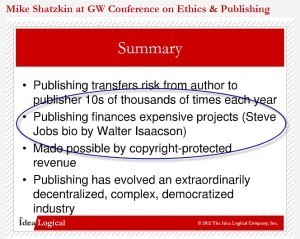
Mike Shatzkin, George Washington University’s fifth annual Conference on Ethics and Publishing
The underlying assumption here is that in traditional publishing, it’s the blockbuster books that effectively generate what passes for research and development money, R&D. A major house can utilize the revenues of a monster seller to take risks on the young and the feckless, the debutantes and the dodgy, the genre-challenged and the passion players.
In the old publishing system— whatever its many faults — best sellers paid for the equivalent of research and development: the nurturing of young writers with a first book of short stories as well as critically worthy mid-list authors.
Now, here, I’ll offer four quick pre-emptive notes, because I don’t think we can accept Williamson’s premise — that traditional publishing has done this job of R&D — without some reservations:
No, we don’t know how much money may (or may not) have been spent by a major publisher during any given time period on lesser-known authors and works.
Yes, if we did know, we’d surely say it wasn’t enough. It is never enough.
No, the boards and corporate parents of the publishing houses weren’t likely wringing their hands over how many newcomers out there might need their help.
And yes, we’d be laboring on a different planet if we found out that using revenue to invest in other authors had occurred “for the love of literature” in these for-profit corporations.
Still, as the industry morphs and struggles, it’s the kind of question the best heads need to be ready to answer: In self-publishing, with every writer working for him- or herself, where does the R&D come from?
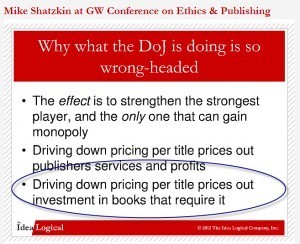
Mike Shatzkin, George Washington University’s fifth annual Conference on Ethics and Publishing
How many advances, even lackluster paltry ones, can Kickstarter replace?
John Mitchinson is cranking Unbound as fast as he can but that thing isn’t a pig farm.
Williamson writes:
This new model (self-publishing in general) sounds less like egalitarianism and more like the Bush administration, intent on outsourcing government jobs to private contractors. In both publishing models, somebody’s still paying, and in self-publishing, that someone is the author. That doesn’t seem especially meritocratic.
A Boon for Bidinotto
It won’t surprise regular Ethernauts to learn that comments on Williamson’s article are punctuated by the usual pitchfork-waving, spitoon-dinging dismissals. Gosh, she seems not to have asked the permission of the self-publishing community to write about these issues. Shame on her.

Robert Bidinotto
Not even the article’s large picture of St. J.A. Konrath seems to mollify this bunch. And we find author Robert Bidinotto among the assembled naysayers.
The Ether covered Robert Bidinotto’s own wide-eyed description of his success when Amazon chose him, unexpectedly, for a post-Thanksgiving offer and shot his self-published thriller, Hunter, right out of a cannon.
Now, Bidinotto writes in a comment on Williamson’s article:
Had I followed the stupid advice of Ms. Williamson, the author of this snarky, factually challenged article, I never would have published my debut novel.
The “stupid advice?”
Williamson points out that there are genuine, deep challenges to any DIY route — as there are in traditional publishing — and that the success stories are not something that self-publishing authors in their thousands can all expect to replicate.
She’s hardly alone in bringing to light how difficult self-publication can be. Author Nancy J. Cohen did this, too, as we reported in the Fourth of July week edition of the Ether. Surely, a realistic experience of the digital disruption of publishing should concede that this is easy for nobody.
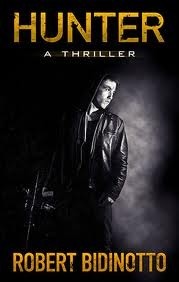 Meanwhile, in this comment, Bidinotto touts being a “#4 Kindle Bestseller,” a “1 Kindle Bestseller in ‘Mysteries and Thrillers,’” earning “six-figure royalties within two months,” and achieving “financial salvation for my wife and me, and a new career as a novelist, in the wake of sudden unemployment at the age of 62.”
Meanwhile, in this comment, Bidinotto touts being a “#4 Kindle Bestseller,” a “1 Kindle Bestseller in ‘Mysteries and Thrillers,’” earning “six-figure royalties within two months,” and achieving “financial salvation for my wife and me, and a new career as a novelist, in the wake of sudden unemployment at the age of 62.”
In another comment on this same story (he comes by twice), Bidinotto writes:
I have yet to pay one penny for advertising, yet that hasn’t prevented HUNTER from becoming a bestseller, with over 67,000 copies sold within its first year of release since late June 2011.
And yet in that Ether coverage of Bidinotto’s interview with Jennie Coughlin, he said:
“I had no advance warning that they (Amazon) planned to feature my book as an ‘Editors’ Pick’—in fact, their #1 editors’ selection—for the entire week!”
Some extremely good luck fell on Bidinotto. And we’re all seriously happy for him, of course. Who doesn’t want to see the power of Seattle’s algorithms work so well for authors? But his was a windfall of rare proportion, the combination of being singled out for a “Big Deal” holiday promotion and for an “Editors’ Pick” blessing at once. This is hardly representative of what most authors — self-publishing or not — can anticipate.
Too frequently, the counter to a serious question of stewardship in the industry’s future is the recitation of an anecdotal anomaly.
The rude, the mad, and the ugly
Whether or not she’s dispensing “stupid advice,” Williamson’s biggest sin may be to point out that the vociferous component to the self-publishing community — exactly the sneering, tone she triggers in some of the people commenting on her post. She writes:
Some self-published authors talk about the current developments in militaristic terms: it’s a battle. It’s a war. It’s a revolution that will lead to the death of the publishing industry. Accordingly, the self-publishing sphere has rebranded itself “indie publishing,” even though its venue, Amazon, is the largest, most dominant corporate force in the book world.
And she does bring up the daunting odds:
For every Joe Konrath, there are many thousands of self-published authors who’ll never see much revenue from their books.
The general tenor of the responses to her piece run along the lines of respondent Ty Unglebower’s opener:
The idea that the author of this article got paid to write something so clearly biased, unsubstantiated, outdated and incorrect says more about the problems in the world of writers than self-publishing does.
Shatzkin weighs in
You’ll find that industry consultant Mike Shatzkin has mentioned the same author-investment point, as well, in his talk at George Washington University’s fifth annual Conference on Ethics and Publishing.
 Shatzkin is with Idea Logical and the national and international Publishers Launch conferences he mounts with Publishers Marketplace’s Michael Cader.
Shatzkin is with Idea Logical and the national and international Publishers Launch conferences he mounts with Publishers Marketplace’s Michael Cader.
He has made his slide deck available from that talk, under the title How the DoJ’s misunderstandings could destroy publishing, and why it’s worth saving. Even if you don’t agree with Shatzkin’s take on the overall situation, it’s worth your time to go through his slides because this is a comprehensive and yet concise explication of traditional publishing’s arguments.
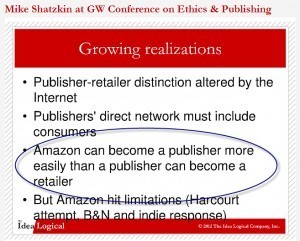 Of special interest is the clarity we begin to get from Shatzkin these days on Amazon. In his recent post, Royalty Share CEO Bob Kohn alleges DoJ violates the Tunney Act, he writes that he doesn’t believe, as some suggest, that “I don’t see ‘collusion’ between DoJ and Amazon as the most likely explanation for the suit and the disaster the settlement could engender.”
Of special interest is the clarity we begin to get from Shatzkin these days on Amazon. In his recent post, Royalty Share CEO Bob Kohn alleges DoJ violates the Tunney Act, he writes that he doesn’t believe, as some suggest, that “I don’t see ‘collusion’ between DoJ and Amazon as the most likely explanation for the suit and the disaster the settlement could engender.”
In fact, referring to the George Washington speech, he writes:
I want to repeat only one point from that speech here. Amazon’s behavior is self-serving, but it is not evil! It is both futile and wrong to blame something in Amazon’s character for the industry’s troubles. Amazon’s shareholders are not primarily interested in the health and well-being of the book publishing ecosystem; they are primarily interested in the growth of Amazon’s value.
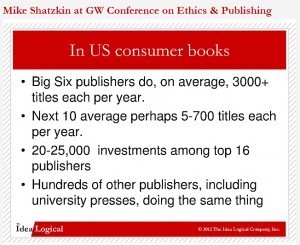
Mike Shatzkin, George Washington University’s fifth annual Conference on Ethics and Publishing
And I find some of Shatzkin’s numbers helpful for explaining to folks the sizes of some of the stakes here. For example:
Big Six publishers each average 3,000 or more titles each year.
The next 10-largest houses each average some 500 to 700 titles per year.
An acquiring editor at a traditional house, he says, will do 10 to 15 books each year.
And when it comes to these questions about investment in authors’ new titles and new careers, I don’t see any easy answers.
Authors working mainly as independent actors, each naturally devoted to his or her own progress and advancement, aren’t necessarily in a position to invest in newcomers and new material from others, however inclined they might be toward mutual support.
And however ad hoc (and untraceable) as traditional publishing’s R&D function of cycling funds back into development may be, it appears — at least on first look — there’s even less such a mechanism in place in a DIY setting.
So this is where I’d like your input:
Do you see a natural investment opportunity and apparatus in place for supporting new talent and the new works of existing authors in a self-publishing setting? Aside from the individual trial-and-error that each self-publishing author funds for him- and herself, where’s the R&D in a DIY industry?
Writing on the Ether now can be followed not only here at JaneFriedman.com (free) but via RSS at the Publishers Marketplace’s Publishers Lunch Automat, in the section, ePublishing and the Future. (A subscription is required for Publishers Marketplace and its many services — easily worth the cost.) The @PublishersLunch industry news service is led by Michael Cader and Sarah Weinman.
Main image: James Cook, Rome
July 14, 2012
3 Worthwhile Reading Tools (Plus 3 Sources for Great Reads)
Today I sent out the latest issue of my e-newsletter, which focuses on three tools for reading on digital platforms.
I also share three of my favorite sources for “long reads,” including:
Longreads
Byliner
Atavist
Click here to view the newsletter, and click here to subscribe and never miss a future issue.
Jane Friedman
- Jane Friedman's profile
- 1882 followers





